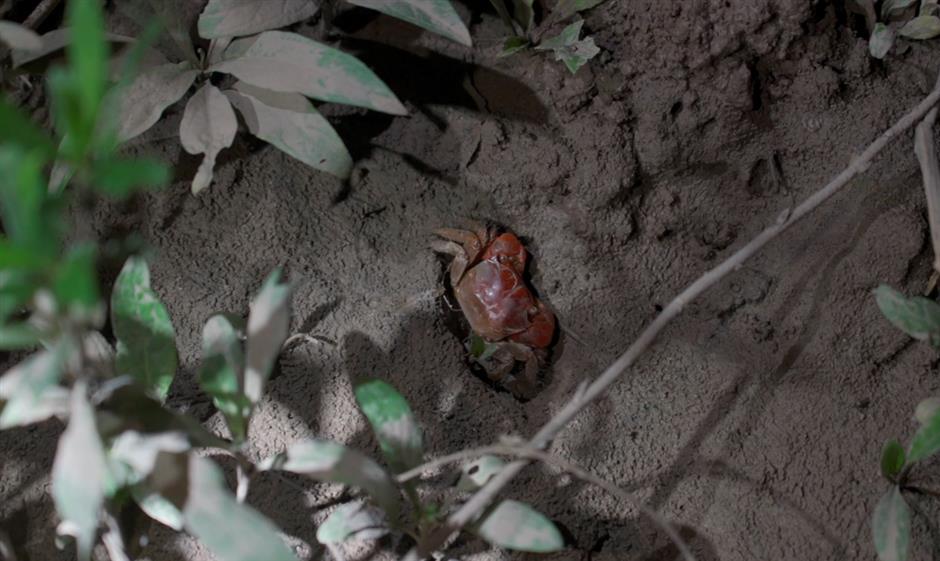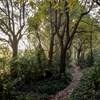Wild Shanghai EP10: Living in the mudflat
Shot by Hu Jun, Dai Qian, Yu Wenhao. Edited by Hu Jun. Subtitles by Wang Xinzhou.
This time, we explored the western part of Chongming Island, where the Yangtze River estuary is located.
Mudflat, regarded as boring and useless by many people, is actually full of life. The mudflat at the rive mouth of Yangtze River is the transit zone of fresh water and salt water. The tide and the river brings sediments and nutrition, making it highly productive and crowded with creatures.
Let's go together to enjoy the fun of muddy feet and find out what's hiding in the mud!
谭氏泥蟹 Dotillid crab Ilyoplax deschampsi
Very common crabs on the mudflat in east China. They are quite small but abundant. When you went to the mudflat, you can see many tiny holes on the mud. With some patience, you could see them climbing out and feeding on the mud.
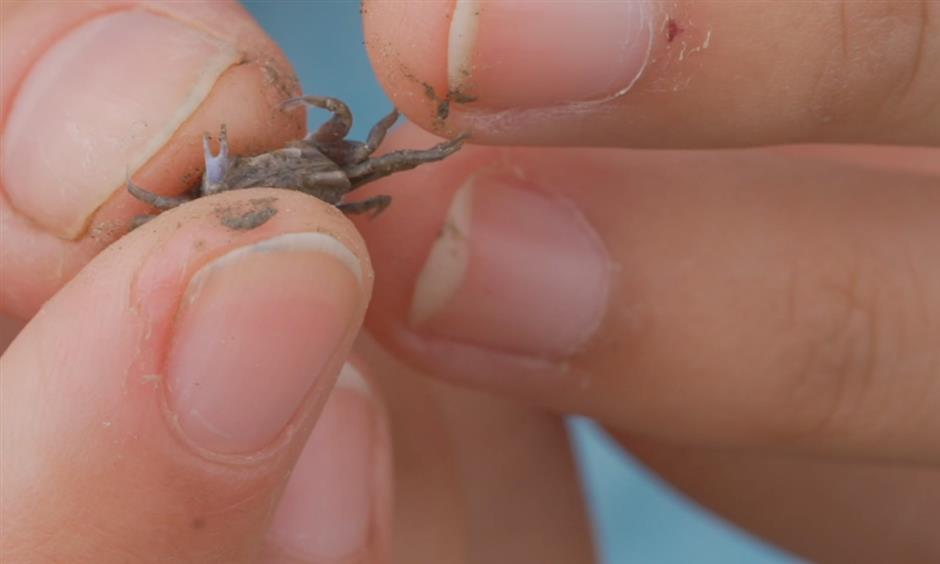
拉氏狼牙虾虎鱼 Odontamblyopus rubicundus
This weird looking goby fish is long and red. It lives in the intertidal mudflat areas. Gulls and terns like this species. I've seen the common terns bringing the goby fish from the mudflat to the breeding island to feed their chicks in the summer. Looks soft and delicious, must be good food for the babies.
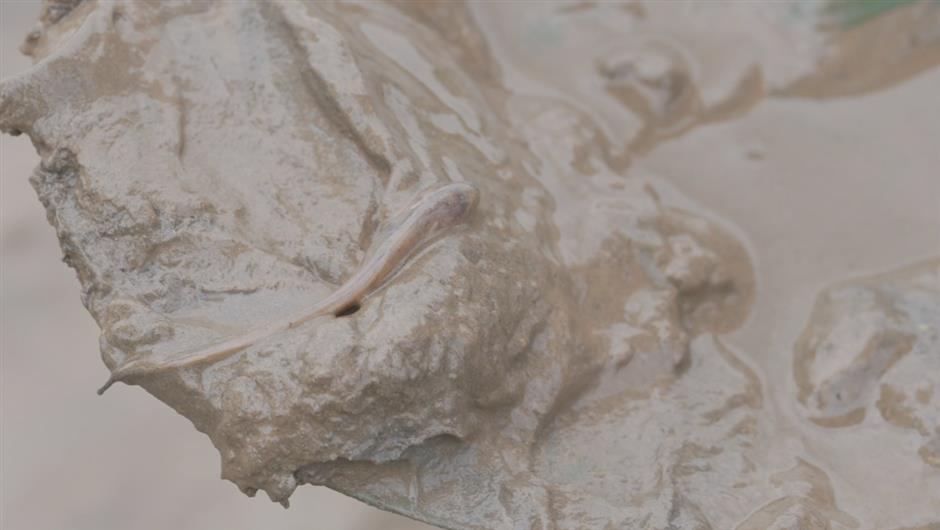
纽虫 Ribbon Worm
Ribbon worm, as indicated by the name, look like long ribbon and without any rings around the body. The name refers to a group of many similar species. This ribbon worm we found lives in the mud and are good food for many bird species.
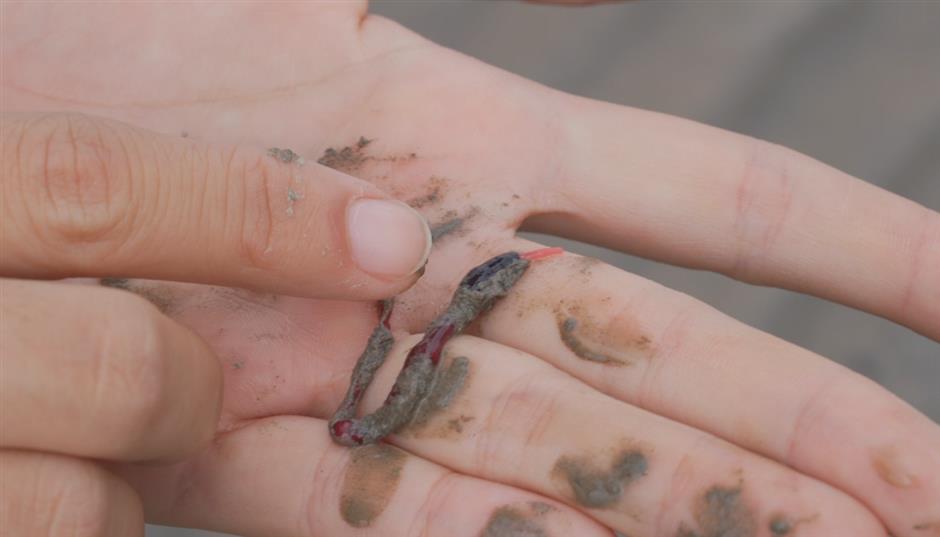
中华绒螯蟹 Chinese Mitten Crab Eriocheir sinensis
Chinese mitten crabs got the name because of the thick hair on the claws that look like a pair of mittens. They are migratory species. It will grow up from an egg to the size of button in the sea, then come to the estuary area and continue upstream to freshwater lakes to grow bigger. They are also famous delicacies in east China. Every autumn, many people came to Yangcheng Lake especially for this delicacy. But few people know they come from the sea.
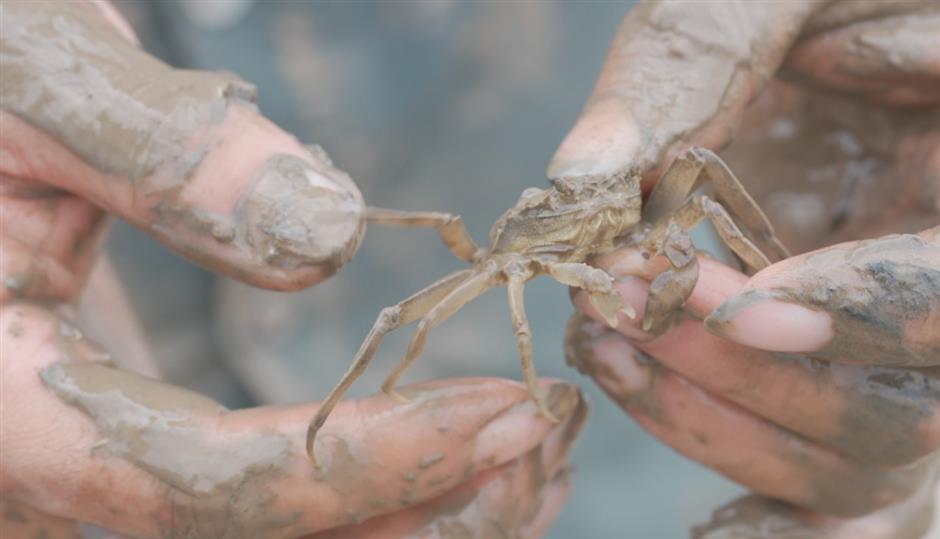
中华东方相手蟹 Sesarmid crab Orisarma sinense
The family name of the species is the sesarmid crab. In Chinese it's called "Xiang shou xie."
相手蟹,means "Sumo wrestler," the traditional Japanese sport. They like to hold their claws just like doing Sumo wrestler.
